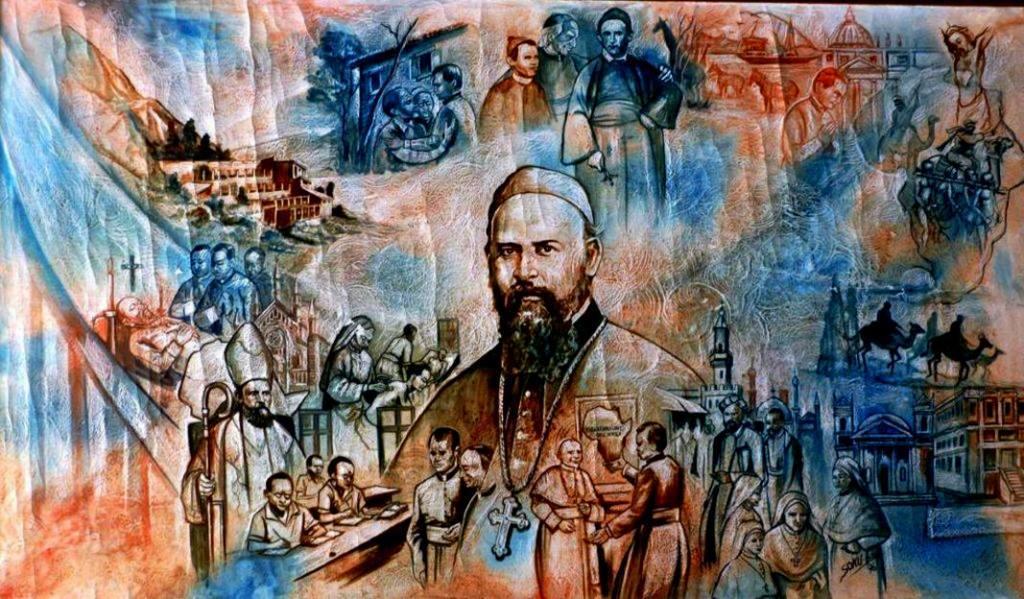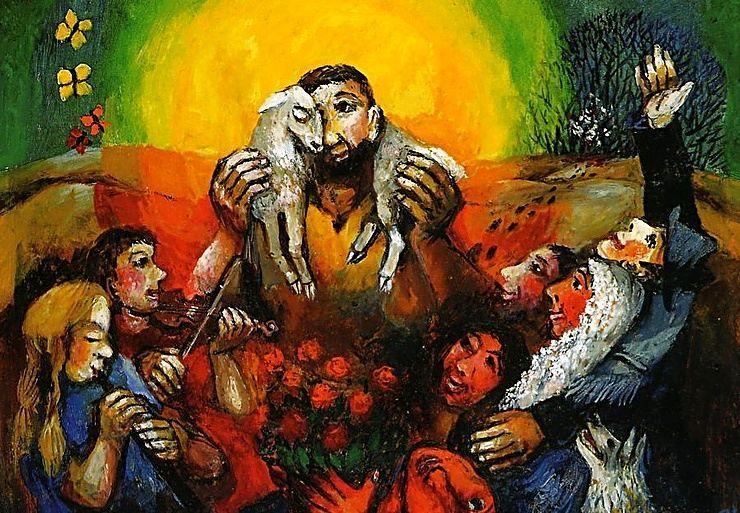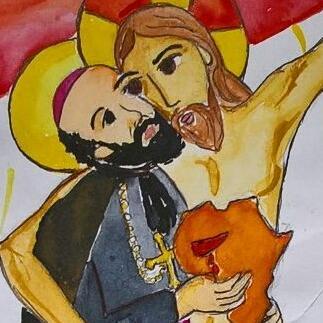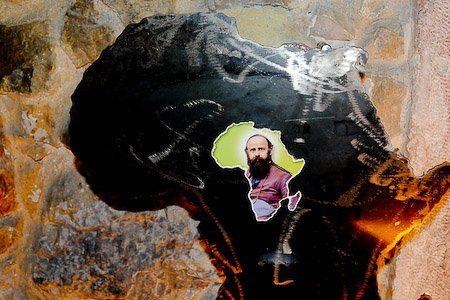Daniel Comboni
Comboni Missionaries
Institutional area
Other links
Newsletter
Tuesday, October 24, 2017
“Spiritual is the person who embodies a mindset close to Christ, so that he lives in and according to the Spirit of Christ. And the first gift of Spirit is Love, which is revealed and poured out from the pierced Heart of Jesus on the Cross. Therefore, spiritual is the person who is docile to the action of the Holy Spirit and lets him progressively penetrate into all his human being, which is made of spirit, soul, and body (cf. 1Thes 5:23). Spiritual person is the one who exposes himself to the Holy Spirit, so that He can penetrate both in his psyche and in his body. The Holy Spirit will convert the person into the figure of Christ. In Saint Daniele Comboni we find the profile of a clear and eloquent spiritual person”, wrote Fr. Carmelo Casile, Comboni missionary.
DANIEL COMBONI WAS A SPIRITUAL PERSON
A signal post in our way of missionary disciples
Spiritual is the person who embodies a mindset close to Christ, so that he lives in and according to the Spirit of Christ. And the first gift of Spirit is Love, which is revealed and poured out from the pierced Heart of Jesus on the Cross.
Therefore, spiritual is the person who is docile to the action of the Holy Spirit and lets him progressively penetrate into all his human being, which is made of spirit, soul, and body (cf. 1Thes 5:23). Spiritual person is the one who exposes himself to the Holy Spirit, so that He can penetrate both in his psyche and in his body. The Holy Spirit will convert the person into the figure of Christ.
In Saint Daniele Comboni we find the profile of a clear and eloquent spiritual person.
His unconditional availability to the Holy Spirit is particularly evident in his text, which describes the charismatic event of September 15, 1864: “The Catholic, who is used to judging things in a supernatural light, looked upon Africa not through the pitiable lens of human interest, but in the pure light of faith; there he saw an infinite multitude of brothers who belonged to the same family as himself with one common Father in heaven. They were bent low and groaning beneath the yoke of Satan... Then he was carried away under the impetus of that love set alight by the divine flame on the slope of Golgotha and out of the side of the Crucified One, to embrace the whole human family; he felt his heart beat faster, and a divine power seemed to drive him towards those unknown lands. There he would enclose in his arms in an embrace of peace and of love those unfortunate brothers of his” (W 2742).
This is the so-called “privileged text”: as a result of this contemplative experience, Comboni reveals that the Trinity is the source of his “so strong and enduring” love for Africa for which he was ready to sacrifice his entire life. Comboni had a deep and constant “sense of God”, but here for the first time he connects his missionary passion with the Trinitarian Mystery.
This text surely witnesses “charismatic event”, which definitively shaped the missionary life of St Comboni. In fact, he witnesses his involvement in the Mystery of God-Trinity. It is actually a personal “confession of the Trinity” as he experienced it, which gives reason for his missionary “impetus”.
The wording of the text reveals that Comboni is speaking about a mystical experience. And we can recognize in him a tireless very altruistic person, with a deep faith in transcendence. God is the first and foremost. He is the “all” of his life that gives reason for his total dedication to the missionary cause for the peoples of Central Africa (cf. RL 2-5).
Even though Comboni is a very extrovert person and he is committed to the conquest of Africa to Christ – “Either Africa or Death” – in his “deep self” he experiences a “strong feeling of God” and looks for God first in every moment of his life and in the people he meets, especially in those people that have been entrusted to him by God.
His encounter with God is so deep that his "I" disappears and Comboni simply becomes “The Catholic, who is used to judging things in a supernatural light” (W 2742) in a constant attitude of discernment.
Therefore, Comboni is a person with a clear inclination to piety. In fact piety is the inner need experienced by the believer and sustained by the Holy Spirit that pushes him to open to his God as to the whole of his life.
By virtue of this inclination, Comboni cannot live without God. He thirsts for God and searches for him and for anything that can take to Him. He looks forward to the accomplishment of God’s plan of salvation including “the neediest and most abandoned in the world” as they are God’s favoured people (Rules of 1871, Chapter I; W 2647).
For this reason, he is willing to offer his life to God with no condition up to the extreme consequences. So his thoughts and feelings are absorbed by God's thoughts and feelings. God is his ultimate end. He then lives pervaded by “a strong feeling of God” and with a strong desire to live in this world in tune with Him and to contemplate His Face in eternity.
Therefore, Comboni is moved by these thoughts and feelings. He is acted upon by the Holy Spirit, thus he is a spiritual person in all his being. Comboni fully belongs to God and to “Nigritia” (=Africa). He received Africa from God as his bride and for her he “spoke, worked, lived and died”.
«Africa and the poor black people
have taken possession
of my heart,
that lives for them alone».
Daniel Comboni
(Writings of Comboni, n. 941)
For this reason, he is not worried about his own life, even though he has encountered infinity of tribulations. He does not look for his own personal gain and does not ask: “What about me? How do I feel?” but “Where do I come from? Who calls me? Where and to whom does He send me? What is my purpose and that of the people entrusted to my care by God?”
In Comboni, the answer to these questions is summarized in the certainty of his vocation: “What helped me not to fail my vocation and sustained my courage to hold firm at my post until death, was the conviction of the certainty of my Vocation” (W 6886).
With this certainty Comboni could say: “Africa and the poor black people have taken possession of my heart that lives for them alone” (W 941).
Comboni is reached by God's thoughts and feelings and get involved “by keeping his eyes fixed on Jesus Christ, loving him tenderly and seeking always to understand more fully the meaning of a God who died on the cross for the salvation of souls” (cf. W 2721). He lives under the influence of the “ray of light that comes from on High”. God is his ultimate goal and therefore lives pervaded by “a strong feeling of God” and with a dynamic desire to contemplate his Face in Eternity and to lead to this end of happiness the entire Nigritia to whom his heart belongs.
His body is moved and acts upon these thoughts and feelings that come to him from the High and fill his heart. Hence Comboni is spiritual in the totality of his being: he belongs fully to God and to Africa as he received her as his bride and for her he “spoke, worked, lived and died”.
The Holy Spirit confirms the thoughts and feelings of Comboni with his consolation and peace: a peace that the world cannot offer but can neither take away. Peace that opens his heart to the liberating solidarity to offer his life for the mission and the Regeneration of Africa. Personal surrender and the regeneration of Africa form a single way to reach Eternity.
For this reason, Comboni can exclaim: “I am always cheerful and already consecrated to God, ready to do all the things God will ask of me” (W 1034).
By Fr Carmelo Casile, mccj







